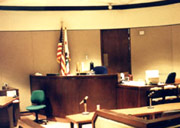|
|
|
Ex-CEO guilty in backdating of options
Securities |
2007/08/08 08:50
|
In a significant slap at Silicon Valley, the first chief executive to stand trial for the backdating of stock options was found guilty Tuesday of securities fraud and making false statements. Gregory L. Reyes, former CEO of Brocade Communications Systems Inc. of San Jose, faces the possibility of 20 years in prison and a $5-million fine for rewarding key employees with options to buy company stock at artificially low prices.
The criminal case has been closely watched by technology firms, many of which maintained that the widespread practice of backdating options was harmless and legal. This so-called scandal, executives quietly asserted, would quickly fade.
Moments after Reyes' conviction on all 10 counts, that belief began to waver, industry observers said.
"It's clear that this jury believes backdating was a serious crime," said Kirk Hanson, executive director of the Markkula Center for Applied Ethics in Santa Clara, Calif. "Every executive in Silicon Valley who has been waiting to find out if the Department of Justice will charge them now has a strong incentive to begin talking to prosecutors."
Dozens of companies throughout the valley and elsewhere have been ensnared in backdating cases.
After the verdict was read, the 44-year-old Reyes appeared stunned. He stared straight ahead, even when U.S. District Judge Charles Breyer dismissed the jury and then left the courtroom himself. Reyes finally stood up and made his way over to his wife, Penny.
She cried, and they held each other tight for a long time.
Reyes is a Silicon Valley native son with deep technology industry roots. His father, Gregorio, is a management consultant and has served as an executive and board member in the semiconductor and disk drive industries. His uncle George is the chief financial officer of Google Inc. Reyes also co-owns the San Jose Sharks hockey team with a consortium of Silicon Valley leaders.
Known in the industry for his aggressive style, Reyes built up Brocade from a company with $24 million in annual revenue in 1998 to $750 million in 2006. His antics to motivate employees included smashing pumpkins inscribed with a competitor's name and blowing up a competitor's product with a cannon.
David A. Kaplan, a technology historian, said he couldn't remember the last time an executive at a major Silicon Valley company was tried and convicted in a federal courtroom.
"Prosecutors have discovered Silicon Valley. If I were a valley executive, I'd be taking note," Kaplan said.
Reyes' lawyer, Richard Marmaro, declined to talk at the courthouse but issued a statement saying that his client would ultimately be exonerated.
"Today, we are disappointed. Tomorrow, we will continue the fight," Marmaro said.
Almost as distraught as the Reyeses were members of the nine-women, three-men jury. Three of the women shed tears. None of the jury members would talk to the media. They ejected reporters who got onto an elevator with them.
Interim U.S. Atty. Scott N. Schools dismissed the argument that the government was unfairly persecuting companies and executives over practices that were widely accepted.
"There's a test of that criticism — the jury," Schools said at a news conference at his offices. Reyes' defense was vigorous and well-resourced, he noted, adding: "I don't think anyone suggested that this was anything other than a fair fight."
Still, Schools declined to cast the verdict as symbolic. "It's our assessment that this was a single jury evaluating evidence in a single case. All of these cases stand on their own merits."
Options are the lifeblood of tech companies. They give recipients the right to buy a stock for a set amount — the exercise price — within a certain period. Typically, the exercise price is the stock's market price on the day the option is granted.
But executives who backdated looked back in time and cherry-picked particularly low prices for the options. That would give the recipient an instant paper profit.
Backdating became a widespread tool for recruiting and retaining key employees during the dot-com boom of the late 1990s. In itself it is not illegal. But it is a crime to fail to report it in financial statements, which is what Reyes was accused of doing in collaboration with Stephanie Jensen, Brocade's head of human resources. By granting discounted options, a company also could be understating its expenses and thus overstating its profit, misleading shareholders.
During the five-week trial, the government argued that Reyes knew he was violating accounting rules when he backdated options. It further asserted that he lied on securities filings to cover up his deception.
Marmaro argued that the government had failed to prove that Reyes, like many CEOs, knew the accounting rules well enough to know that backdating options and not reporting the practice was wrong. Besides, the lawyer said, Reyes never backdated stock options he granted himself.
Charles Ross, a white-collar defense lawyer at Charles A. Ross & Associates in New York, said he was surprised at the guilty verdict.
"I thought the government did not have a lot of smoking-gun evidence," he said. "But it's a tough environment out there to defend any corporate fraud charge these days."
The verdict, Ross predicted, "will embolden some prosecutors."
The government's pursuit of backdating has caused more than 100 companies to restate their financial results.
Brocade, a designer of data storage networking products, restated its earnings between 2000 and 2004 and was fined $7 million by the Securities and Exchange Commission in May.
The SEC is pursuing a civil case against Reyes, former human resources Vice President Jensen and former Chief Financial Officer Antonio Canova. |
|
|
|
|
|
|
Court Seizes OJ Simpson's All-Pro Football Earnings
Court Watch |
2007/08/08 08:43
|
| Relatives of murder victim Ron Goldman won a court order on Tuesday seizing any money O.J. Simpson earns for lending his name and likeness to a football video game with a fictional team called the Assassins and a knife-wielding mascot. The legal victory was part of an effort by Goldman's estate to satisfy a $33.5 million judgment won against Simpson in a wrongful death suit brought against him in the 1994 stabbing deaths of Goldman and Simpson's ex-wife, Nicole Brown Simpson. The former star running back was acquitted of criminal charges in 1995 at the end of a sensational murder trial but was found legally responsible for their deaths by a civil court jury two years later. Simpson has maintained his innocence and vowed never to pay the jury award voluntarily. Last week, Goldman's estate, led by his father Fred Goldman, secured rights to Simpson's aborted book, "If I Did It," containing his hypothetical first-person account of the murders, after a long legal fight with the now-bankrupt company set up to collect Simpson's reported $1 million advance. In their latest bid to collect on the civil judgment, the Goldmans went after any licensing fees, royalties or other compensation Simpson was paid or will be paid for his name and likeness in the new video game, "All-Pro Football 2K8." The game is published by Take-Two Interactive Software (TTWO.O), the company behind such controversial video game titles as "Grand Theft Auto" and "Manhunt 2," which was banned in Britain and given the equivalent of an adults-only rating in the United States. TEAM OF "ASSASSINS" "All-Pro Football" features the likenesses of 240 retired National Football League players, including Simpson, whom game users can assign to fictional teams with preset names, one of which is "The Assassins." As previewed on a Web site for video game promotional trailers, the team mascot is a hooded figure who makes stabbing motions with a large knife in the end zone when the Assassins score. Simpson does not have to be assigned to that team, but he was in a clip shown on the Game Trailers Web site. Take-Two has declined to say how it obtained rights to Simpson's name and likeness but said he was compensated. The company also has issued a statement saying the knife-wielding Assassins mascot is "not specifically associated with O.J. Simpson, and the game does not promote any such connection." Under the order issued by Los Angeles County Superior Court Judge Gerald Rosenberg, any earnings to Simpson that "have been paid, are due or may be due in the future" for use of his image and likeness in the video game must be turned over to the Goldman estate. Moreover, Simpson was ordered to turn over copies of his Take-Two contract and related documents, as well as any other financial deals he has yet to disclose. "Basically he (the judge) said to Mr. Simpson, 'Pay up,"' Goldman attorney David Cook said after the hearing. Ronald Slates, a lawyer for Simpson, argued against the order, saying the California court lacked jurisdiction over his client, who has lived in Florida for several years. |
|
|
|
|
|
|
Court denies test drugs to dying patients
Law Center |
2007/08/08 07:44
|
People who are dying do not have the right to obtain unapproved drugs that are potentially lifesaving, even if their doctors say the treatment offers their best hope for survival, a U.S. appeals court here ruled Tuesday. In an 8-2 decision, the court said federal drug regulators were entrusted by law with deciding when new drugs were safe for wide use.
The families of terminally ill patients, several of whom died after they were denied promising drugs that were still in tests, filed suit. They said that patients who were dying were far more willing to take risks and argued that they should not be forced to wait years for new treatments to win final approval from the Food and Drug Administration.
The judges said the families should take their pleas to Congress, not the courts.
However, the two dissenters said the ruling ignored the Constitution's protection for individuals and their right to life, and instead bowed to "a dangerous brand of paternalism" that put the government's interest first.
Leaders of the Abigail Alliance for Better Access to Developmental Drugs said they would appeal to the Supreme Court. The group was named in honor of Abigail Burroughs, a 21-year-old University of Virginia student who died of cancer in 2001. Her father, Frank, said she was denied the use of two investigational anti-cancer drugs that were recommended by her oncologist. These drugs later received FDA approval.
"We are talking about terminally ill patients and about drugs that were shown to work in earlier trials," said alliance co-founder Steve Walker, a St. Petersburg, Fla., geologist whose wife died of colon cancer.
In 2003, the alliance petitioned the FDA, urging it to change its rules so that drug companies could make available to dying patients "investigational drugs" that had won preliminary approval. There is a "different risk-benefit trade-off facing patients who are terminally ill and have no other treatment options," it said.
The FDA turned away the plea, saying it needed "to maintain a strong clinical trial system" to gather evidence before approving drugs for general use.
With the aid of the Washington Legal Foundation, a conservative nonprofit, the alliance sued the FDA. It said the Constitution should be read to "embrace the right of a terminally ill patient with no remaining approved treatment options to decide, in consultation with his or her own doctor . . . to seek access to investigational medications that the FDA concedes are safe and promising enough for substantial human testing."
The case touched on issues that had been debated fiercely in medical and legal circles.
Medical experts have long disagreed on whether the FDA moves too slowly or too quickly in approving new drugs. Some doctors have argued that clinical trials should be opened to more patients who might benefit from the new treatments.
And since the Roe vs. Wade ruling in 1973 that set out the right to abortion, many legal scholars have frowned on judges creating "new rights" from vague clauses in the Constitution. The suit over new drugs focused on the 5th Amendment, which says "no person shall be . . . deprived of life, liberty or property, without due process of law."
In 2004, a federal judge rejected the alliance's suit, saying there was "no constitutional right of access to unapproved drugs."
Last year, however, a three-judge panel of the U.S. appeals court sided with the group.
In a 2-1 decision, it said a "terminally ill, mentally competent adult patient" had a right to "potentially lifesaving investigational new drugs" which had been found to be safe for humans.
But before that decision could take effect, the full U.S. Court of Appeals for the District of Columbia voted to rehear the case. And Tuesday, it reversed its panel's ruling.
"We conclude there is no fundamental right 'deeply rooted in this nation's history and tradition' of access to experimental drugs for the terminally ill," said Judge Thomas B. Griffith, a Bush appointee, citing a Supreme Court decision that rejected the notion of a constitutional right to die. Griffith's opinion was joined by conservative and liberal members of the appeals court.
The two dissenters were Judge Judith W. Rogers, a Clinton appointee, and Chief Judge Douglas H. Ginsburg, a Reagan appointee.
"In the end, it is startling," Rogers wrote, that the Constitution has been read to include unnamed "fundamental rights" to marry, to control a child's education, to have sex in private and to have an abortion, "but the right to save one's life is left out."
Julie Zawisza, an FDA spokeswoman, said the agency was pleased with the ruling because it upheld the agency's "role in facilitating appropriate treatment access to investigational therapies while at the same time protecting the public at large by requiring that drugs are proven to be safe and effective before they may be marketed to U.S. consumers."
She also said that "on a limited basis," some patients and their doctors were permitted to obtain new drugs that were in clinical trials. |
|
|
|
|
|
|
Student pleads not guilty to hazing charge
Breaking Legal News |
2007/08/08 06:48
|
A Rider University student pleaded not guilty on Wednesday to an aggravated hazing charge in connection with the binge drinking death of a freshman earlier this spring. Adriano DiDonato, 22, of Princeton, did not speak during the arraignment at the Mercer County Courthouse as his lawyer Paul Norris entered a not guilty plea on his behalf. A second student, Dominic Olsen, 21, of Kenilworth, who was originally scheduled to be arraigned along with DiDonato had his hearing delayed until next week, said Mercer County Prosecutor spokeswoman Casey DeBlasio.
Speaking after the court hearing, Norris said that his client was devastated by the death of Gary DeVercelly Jr., of Long Beach, Calif.
"This is a tragic event and by no means does Adriano minimize what happened here," Norris said. "He's very sad about what happened, as is the rest of the fraternity."
DeVercelly had a blood-alcohol level of 0.426 percent, or more than five times New Jersey's legal limit for driving, when he was pronounced dead March 30 at a Trenton hospital, authorities said. He died one day after drinking at a party at the Phi Kappa Tau house on the private school's campus in central New Jersey.
The party, according to prosecutors, was a special event in which pledges such as DeVercelly would drink with fraternity members. Some of the pledges drank entire bottles of hard liquor in under an hour, prosecutors have said.
Olsen was the pledge master of the fraternity's spring 2007 pledge class, and DiDonato was the fraternity's residence director and house master.
Two school officials and a third student were also charged in connection with DeVercelly's death: Ada Badgley, 31, the university's director of Greek life; Anthony Campbell, 51, the dean of students; and Michael J. Torney, 21, the fraternity chapter president.
The indictments mark one of the first times that university officials have been criminally charged in a suspected hazing death, according Doug Fierberg, a lawyer retained by DeVercelly's parents, who has represented hazing victims since the mid-1990s.
Torney and Campbell were to be arraigned Thursday, while no date had yet been set for Badgley's court appearance, DeBlasio said.
Jonathan Meer, Rider's vice president of university advancement, said Tuesday that no decision had been made about the employment status of the two school officials.
If convicted, the officials and fraternity members would face a maximum penalty of 18 months in prison and a fine of up to $10,000.
The school dissolved the Phi Kappa Tau chapter last Friday. |
|
|
|
|
|
|
Cargill Settles Class-Action Suit
Class Action |
2007/08/08 06:45
|
Wichita, Kan.-based Cargill Meat Solutions has settled for $1.1 million a federal class-action lawsuit filed by Pennsylvania-based employees who claimed they weren't compensated for all the hours they worked.
The lawsuit, filed in March 2006 by seven workers at Cargill's meat processing plants in Wyalusing, Pa., and Hazleton, Pa., alleged that, beginning in March 2003, they weren't paid for time spent performing pre- and post-shift duties, including cleaning and sanitizing protective gear.
In August 2006, U.S. District Court Judge William Nealon certified the class-action complaint, joined by 4,100 former and current workers from the Hazleton plant and 2,300 from the Wyalusing facility.
The settlement, reached late last month, will pay those who opt in between $300 and $900, depending on their job and length of service. Their attorneys will receive nearly $330,000.
The judge's approval effectively dismisses the claims, and bars any employee who chooses to receive payment from suing Cargill with the same claims. |
|
|
|
|
|
|
Conn. Home Invasion Suspects in Court
Breaking Legal News |
2007/08/08 05:43
|
Two suspects in a burglary and arson that left three people dead and rocked a suburban town last month faced a slew of charges Tuesday in a heavily secured courthouse. Family members of the victims - the wife and daughters of a prominent doctor, who survived the attack - filled two rows in the packed courtroom. A man was escorted from the courtroom after he yelled "Killer!" as Joshua Komisarjevsky faced the judge. Otherwise, the brief hearing was quiet. Komisarjevsky, 26, and Steven Hayes, 44, did not enter pleas and spoke only to answer yes or no questions. Department of Corrections special operations team members wearing fatigues and heavy, black vests kept watch on the two. The men have been held on $15 million bond since July 23, when they are accused of taking the family hostage, killing 48-year-old Jennifer Hawke-Petit and her two daughters, Hayley, 17, and Michaela, 11. The state medical examiner said Hawke-Petit, who was taken to a bank and forced to withdraw money during the ordeal, was strangled. The girls died from smoke inhalation after the family's suburban Cheshire home was set ablaze. William Petit Jr. was badly beaten but managed to escape. He did not attend Tuesday's hearing. Jeremiah Donovan, the attorney appointed to represent Komisarjevsky as a special public defender, acknowledged the challenge of working on such a high-profile case. "I myself live with a beloved wife and two lovely daughters, but I'm going to defend Joshua with all the ability and all the vigor that I might have," he said. Komisarjevsky and Hayes, who met in a halfway house and were on parole when the crime occurred, are charged with capital felony, kidnapping, sexual assault, assault, burglary, robbery, arson, larceny and risk of injury to children. Prosecutors have said they will seek the death penalty. |
|
|
|
|
|
|
Local judge to hear property tax class action suit
Tax |
2007/08/08 04:47
|
Hancock County Circuit Court Judge Richard Culver spent two hours this morning in private chambers with attorneys representing the Marion County homeowners who filed a class action lawsuit challenging property assessments and the county assessor's office.
Some of the claims made in the lawsuit were addressed when the Indiana Department of Local Government Finance ordered a reassessment for all real property in the county.
The only remaining questions concern the timing of refunds to taxpayers who paid up before the deadline and who has jurisdiction over the issue.
The hearing was rescheduled for 9 a.m. next Monday and Culver issued a written statement. The court will determine if the remaining issues can be resolved by agreement. |
|
|
|
|
|
|
Class action or a representative action is a form of lawsuit in which a large group of people collectively bring a claim to court and/or in which a class of defendants is being sued. This form of collective lawsuit originated in the United States and is still predominantly a U.S. phenomenon, at least the U.S. variant of it. In the United States federal courts, class actions are governed by Federal Rules of Civil Procedure Rule. Since 1938, many states have adopted rules similar to the FRCP. However, some states like California have civil procedure systems which deviate significantly from the federal rules; the California Codes provide for four separate types of class actions. As a result, there are two separate treatises devoted solely to the complex topic of California class actions. Some states, such as Virginia, do not provide for any class actions, while others, such as New York, limit the types of claims that may be brought as class actions. They can construct your law firm a brand new website and help you redesign your existing law firm site to secure your place in the internet. |
Law Firm Directory
|
|









